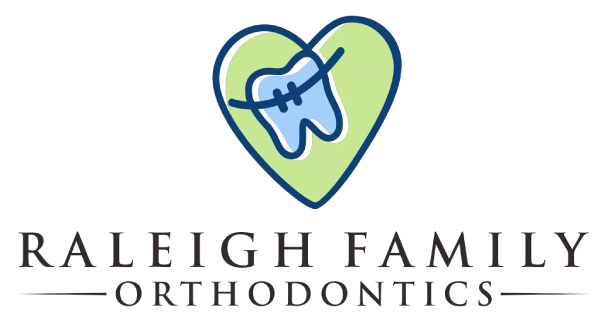Teeth Cleaning
Raleigh, NC
Teeth Cleaning provided by Dr. Neill
and Dr. Lee
in Raleigh, NC at Raleigh Family Orthodontics
 There are rituals in your life as an adult that you adhere to. You visit your doctor each year for a checkup. You take your kids to school each morning. You and your children visit our dentist twice a year for teeth cleanings and an examination. There are rituals in your life as an adult that you adhere to. You visit your doctor each year for a checkup. You take your kids to school each morning. You and your children visit our dentist twice a year for teeth cleanings and an examination.
While you bring your children and yourself into our office for dental cleaning, you may wonder why your teeth need a professional cleaning at all. Here is some information from Raleigh Family Orthodontics about why dental prophylaxis cleanings are so important.
Why Do I Need Dental Cleanings?
Dental cleanings are an essential part of the oral hygiene process. You take care of your teeth and gums at home. You clean your teeth after eating or at least twice a day. You also floss daily as well. This oral hygiene, as well as your dental checkups, help keep your teeth and gums disease-free in between dental cleanings. Oral care is very important for your overall health as well as your dental health.
If you practice good oral hygiene techniques, you are removing plaque every day. Plaque is a filmy layer over your teeth that is a mix of saliva, bacteria, and bacterial acid. You can feel any plaque on your teeth if you run your tongue over them. If you do not brush or floss your teeth every day, the acids from bacteria will eat away at your tooth enamel, which is how dental cavities get started.
However, no tooth-cleaning ritual is perfect. Even if you brush and floss each day, you are likely to miss a spot or two. Over time, the plaque that you accidentally leave on your teeth and gums hardens and becomes tartar. You will not be able to remove the tartar yourself.
Dental hygienists will need to use tartar removal tools to get the tartar off your teeth and along the gumline. If tartar is not removed at least twice a year, it can cause both cavities and gum disease. Gum disease is typically more serious than cavities because gum disease can lead to infection, inflammation, and tooth loss, as well as spreading infection to other areas of your body.
What Happens During a Teeth Cleaning?
If it has been a while since you had a good teeth cleaning, there have been some changes at the dental office. One of the biggest changes in our office is how we take X-rays. X-rays are usually the first step we make during the dental cleaning process.
Most dentists now have digital X-ray machines, which means you need fewer X-rays, and your X-rays can travel with you no matter where you move. There are also many types of X-rays our dental practitioners can take. We can even take X-rays using a panoramic camera, so we can get a look at all of your teeth and mouth structures in one shot.
The Teeth Cleaning Process
After X-rays, the dental hygienist will move to the overall inspection of your teeth, gums, and mouth structures. The hygienist does this to note any changes to your mouth since your last exam. Next, the dental hygienist moves to cleaning your teeth. Usually, hygienists begin at the same place each time they clean your teeth.
For example, many hygienists begin on the left-hand side of your upper teeth. The hygienist uses dental tools to scrape away any tartar on your teeth, especially if it is located near your gumline.
Many patients wonder how long it will take to clean their teeth. That depends on how well you have cleaned your teeth and gums. If you have been taking care of your teeth and gums twice a day, it will not take the hygienist long to remove the tartar. If there are areas where you have tartar, it may pinpoint where you need to take a little extra time brushing and flossing.
Why Is It So Important for Me to Have Tartar Removed During a Dental Cleaning?
While having tartar removed may seem tedious, it is important. When the plaque from your teeth hardens into tartar, you cannot remove it through brushing or flossing. Only dental tools can remove the tartar. Any tartar you have on your teeth needs to be removed because if it remains on your teeth, it can cause cavities and periodontal disease.
Flossing
Once your teeth have been cleaned, the hygienist will floss all of your teeth, partly because they want to make sure that your teeth are completely clean and partly to check for gum disease. Gum disease has three stages, and one of the most apparent signs you may have gum disease is that your gums bleed when you floss them. Bleeding gums is an indication you may have the first stage of gum disease (also called gingivitis). If the hygienist finds that your gums bleed when they are flossing them, our dentist may suggest you switch toothpaste and floss more often to get rid of gingivitis before it worsens into periodontitis.
Tooth Polishing
Once your teeth have been thoroughly cleaned of plaque and tartar, the dental hygienist will polish your teeth. Depending on which type of tooth polishing you select, the hygienist will use a baking soda formula and a polishing tool that looks a bit like an airbrush tool to polish your teeth beautifully.
Some people prefer a different flavor of tooth polish, such as cinnamon or mint. There are tooth polishers that rotate quickly over your teeth to polish them. No matter which type of tooth polish you want, your teeth will feel clean and beautiful when the hygienist is finished.
What if It Has Been Awhile Since I Had My Teeth Cleaned?
If it has been some time since you had your teeth cleaned, do not worry. Our dental office is prepared to help you resume a good dental regimen, which begins with getting your teeth cleaned and examined. Be sure when you call to schedule an appointment that you let our office know so that we can give our hygienist time to clean your teeth thoroughly.
Get a Teeth Cleaning in Raleigh!
Reach out to Raleigh Family Orthodontics today at (984) 254-0585 so that we can schedule an appointment for you as soon as possible. |
